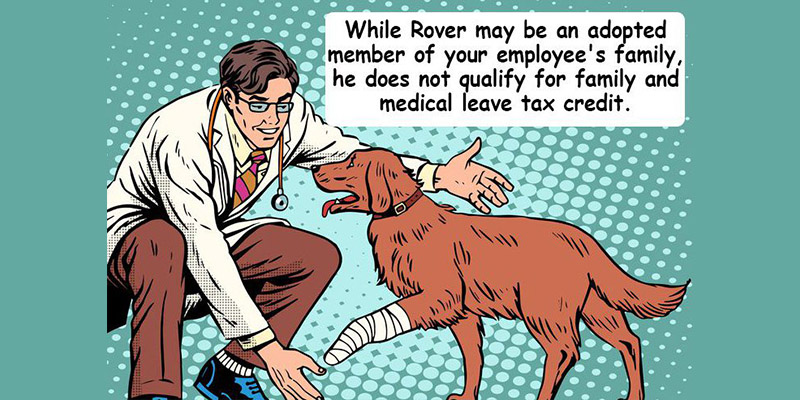I have previously written about how to pay, when to pay, and even the method to pay employees, so now let’s look at what needs to be provided to an employee with their check (their pay stub). Similar to my last article about when a final check is due to a separated employee, there is no Federal law which means the power to dictate is in the hands of each state. This certainly can become confusing to a company who operates in multiple states, and the best practice here is to comply with the state that has the most requirements. We will…
Posts published in “Payroll”
With the exception of four states (Alabama, Florida, Georgia, and Mississippi), each state has specific laws regarding the issuance of a final paycheck to a separated employee. Many states differentiate whether the employee was separated voluntarily or involuntarily, and the timing ranges from “immediately” (yes, this means the same day the employee is terminated) to the next scheduled payday, so I have put together this table for quick and easy reference. Each state has penalties for violation of the final check rule, so be sure you know what is required. A state such as California will enforce the employer to…
There are tax credits and savings all around us, but if you do not know what to look for or have an experienced tax adviser, you may be missing out. One rarely known tax savings is the Successor employer rule. The regulations can be found under IRS Code 31.3121(a)(1)-1(b), and there is a single, small paragraph that makes mention of it in Publication 15 Employer’s Tax Guide, but I will give you the rundown here. If you have purchased or looking to purchase a business, then this is definitely one you do not want to overlook. Most employer taxes are…
While I am biased, as President of PayMaster, a payroll service provider, I do find the rare case for a business to utilize the services of a Professional Employer Organization (PEO) or Employee Leasing as it is sometimes referred to. In my opinion, there are only two reasons for a business to utilize a PEO, and that is in regards to Health insurance and Workers’ Compensation insurance as we will discuss. If the PEO route is the decision then I strongly recommend proceeding with caution and do your math, taking into consideration the big picture of the financial cost. This not…
This past week, voters in Washington, D.C. elected to raise the minimum wage for tipped workers to minimum wage by passing Initiative 77. Wait aren’t they already receiving minimum wage? Sort of. While the federal minimum wage is $7.25 per hour, the minimum wage for an employee who receives at least $30 per month in tips is only $2.13 an hour. This does not mean that an employee who works a 40 hour week is only going home with less than $100 gross. The employee is expected to receive tips that bring them up to the regular minimum wage, and should that…
According to the Society for Human Resource Management (SHRM), nine out of ten employers conduct background screening on candidates when hiring. It’s clear employers want to make safe hiring decisions. This is even more important because of the growing number of American workers that have a criminal history. In fact, the Bureau of Justice reports that almost one-third of working Americans have a criminal history on file — and this number is continuing to rise. Given these statistics, it’s inevitable you’ll find a candidate with criminal history when conducting background screening. Some risk-averse employers may make the common mistake of…
The Credit For Portion Of Employer Social Security Paid With Respect To Employee Cash Tips, or Excess FICA Tax Credit on Tips, for short, to be exact. If you are familiar with this tax credit, then congratulations, you are one of the few (just be sure you are not a victim to the ‘Confusions’ I point out below). The IRS recently reported that for tax 2012 (yeah, it takes them this long to report), 66,400 taxpayers took advantage of this credit. This quantity seemed underwhelming to me, so I did some research as to how many businesses were potential candidates. …
We carry health insurance for routine ‘maintenance’ and unforeseen events, auto and home insurance for unexpected property losses, but what about protection and assistance with the day to day situations that could require legal assistance? Review of an agreement or contract ♦ securing a mortgage ♦ collecting or settling a debt ♦ credit report issues ♦ probate ♦ bankruptcy ♦ immigration ♦ divorce ♦ preparing a will ♦ traffic citation ♦ marriage ♦ purchasing faulty merchandise/consumer protection ♦ notary services ♦ these are all situations where having an attorney would be of great value, but sometimes the cost can be discouraging from having the much needed legal assistance. Studies have shown that 7 out of 10 people have experienced some sort of legal event in…
When the Tax Cuts and Jobs Act was signed into law back in December 2017, it included Section 45S to the IRS Code which includes a credit for employers who pay for family and medical leave. The credit is a percentage of the amount of wages paid to a qualifying employee while on leave for up to 12 weeks per taxable year. The minimum percentage is 12.5% and is increased by .25% for each percentage point by which the amount paid to a qualifying employee exceeds 50% of the employee’s wages, with a maximum credit of 25% (for employers that…










